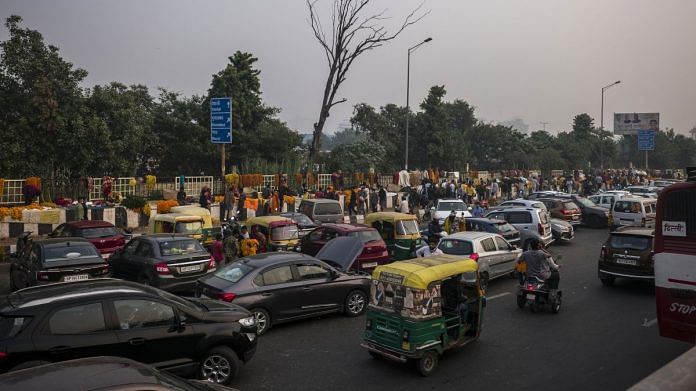Singapore/Mumbai: The rapid spread of omicron has yet to dampen road traffic across most of Asia even as it leads to restrictions in parts of Europe, suggesting energy demand in the region may be spared a significant hit.
More cars have thronged the main roads in December amid year-end festivities than seen last month. All but one major Asian country registered a rise in mobility on-month, according to data compiled by Bloomberg using Apple Inc. mobility statistics until Dec. 27.
The broadly positive picture from Asia — at least so far — may help to support gasoline demand and refining margins, which in turn could aid physical crude consumption and oil futures into 2022. Global benchmark Brent advanced by more than 3% in the week leading up to Christmas, and has extended gains since then, briefly retopping the $80-a-barrel level on Wednesday.
Still, the region’s biggest oil guzzler, China, has shown signs of weakening fuel demand. While Apple doesn’t provide data on China, other local providers like Baidu Inc. showed that road congestion has eased in Shanghai, while it was up a little in Beijing. Xi-an, a city of more than 10 million people that’s under lockdown after a surge in virus cases, saw congestion drop by a fifth on Wednesday from a week earlier, according to data from Baidu’s map service.
Xi'an, capital of northwest China's Shaanxi Province, upgrades comprehensive measures to curb latest COVID-19 resurgence #XinhuaHeadlines https://t.co/vdZ2jVPr8Y pic.twitter.com/ytdwcJ00E3
— China Xinhua News (@XHNews) December 27, 2021
China’s relentless zero-covid approach continues to undermine travel plans, while an increasingly tough line against pollution is further impeding demand. Consumption of transport fuels may face headwinds heading into the new year. On Wednesday, Chinese officials renewed their commitment to a zero-tolerance approach against the disease as they battle the biggest and most protracted outbreak since the virus emerged.
In India, demand may remain more resilient as the federal government has avoided fresh nation-wide restrictions even as some states announced night curfews and other curbs. Driving activity in December has been significantly higher, with crowds thronging malls and markets. Diesel sales in the first half of this month were up 18% on-month, while gasoline usage rose about 7%.
Late-night visuals of people gathering at Mumbai’s Bandra Reclamation area which is all lit up for New Year.
Amid rising COVID cases and Omicron scare, Maharashtra govt has banned congregation of more than 5 people from 9 pm to 6 am throughout the state in all public places. pic.twitter.com/b5jvlSz7Yx
— ANI (@ANI) December 28, 2021
Traffic has surged in Australia too, with driving activity 12 percentage points higher through Dec. 27 than in November. Still, a surge in cases clouds the outlook as it may test the government’s resolve to continue reopening. New South Wales recorded 11,201 new cases on Wednesday, almost double over the previous day’s figure, and hospitalizations hit the highest since mid-October.
While road fuels such as diesel and gasoline may be holding up against the rise in omicron so far, jet fuel demand may not be so resilient as borders close again. Asian aviation hub Singapore froze ticket sales for flights under its vaccinated travel lane program, while Indonesia may ban overseas travel. Meanwhile, China’s new aircraft-cleaning rules may trigger cancellations. Hong Kong landed another blow to regional travel as it axed quarantine exemptions for all crew working on non-mainland China passenger flights. –Bloomberg
Also read: Palm oil duty cut to reduce prices will fry domestic potential, self-reliance, say producers



